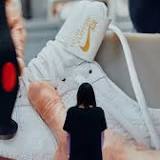Boohoo snaps up Debenhams brand for £55m as Asos targets Topshop

Online fashion retailer Boohoo has agreed to buy the brand of failed department store Debenhams just as rival Asos sets its sights on Topshop — the clearest sign yet of how the pandemic is helping to reshape Britain’s retail industry.
The news that Boohoo will pay £55m for the intellectual property, including customer data, of Debenhams, came as Asos said it was in exclusive talks to acquire the Topshop, Topman, Miss Selfridge and HIIT brands that were part of Arcadia, the fashion empire assembled by retail tycoon Philip Green.
Neither Asos nor Boohoo want to operate physical shops, meaning that Debenhams’ remaining 118 department stores and more than 400 sites occupied by Arcadia look set to close for good, threatening tens of thousands of jobs.
John Lyttle, Boohoo chief executive, said he was confident that Debenhams would work as an ecommerce business even though previous attempts to reinvent brands such as BHS and Woolworths online have failed.
“The key is to have the right products,” he said. “We’ll be revisiting which brands we want to sell and we’ll be putting existing Boohoo brands into the [Debenhams] marketplace.”
The deal will facilitate expansion into categories such as beauty, sportswear and homewares, and bring established fashion brands such as Maine, Mantaray and Principles into the Boohoo fold.
It will also increase Boohoo’s audience. Debenhams is one of the top 10 retail websites in the UK, with 300m visits and £400m of sales in the year to August 2020.
“We’ve always been very clear about our ambitions in regards to scale and size,” said Mr Lyttle, adding that he was confident Boohoo could manage the integration of Debenhams as well as its own rapid sales growth.
Online fashion brands such as Boohoo and Asos have prospered during the Covid-19 pandemic, picking up market share from store-based rivals that were forced to close during the UK’s repeated lockdowns.
Their shorter and more agile supply chains allowed them to pivot quickly away from formalwear and going-out attire to the “lockdown chic” style of hoodies, joggers and leggings.
Shares in both Boohoo and Asos climbed more than 3 per cent in morning trading in London on Monday. Both companies took advantage of investor enthusiasm last year, raising fresh equity with a view to making acquisitions.
While online specialists have flourished, the pandemic dealt a fatal blow to 243-year-old Debenhams, one of the UK high street’s best-known names. The company returned to the stock market with a £1.7bn capitalisation in 2006 — the year Boohoo was founded — but has struggled with weak sales and high store costs. The company, which employs about 12,000 people, went into administration for the second time in April last year.
Richard Hyman, an independent commentator, said the Boohoo acquisition brought “the most drawn-out death in retail history” to a close. “Both Debenhams and Arcadia were fatally wounded already. Covid just accelerated everything.”
Recommended
Arcadia was among the most important players in fashion during the early 2000s, when Sir Philip was fond of downplaying the emergence of pure-play online retailers.
But it too collapsed into administration in November after its relatively weak online operation was unable to offset the punishing impact of the lockdowns. It employs about 13,000 staff.
Like Debenhams, it had been in difficulty before the pandemic, with retail guru Mary Portas describing it as “a case study in how to squander brand equity”.
Jonathan Reynolds, an associate professor at Oxford Saïd Business School, said that Boohoo and Asos were “undertaking the reinvention of the brands that their original owners kept putting off”.
But the closure of 118 Debenhams department stores, covering a floor area equivalent to 148 football pitches, will deal a severe blow to many town centres.
“It’s going to be pretty grim for the next couple of years,” said Chris Turner, chief executive of British BIDS, which represents local Business improvement districts.
“There will be solutions but it will take some time and local authorities will need support from government . . . there’s no point believing that big retailers are going to parachute in to fill this space,” he added.


 United Kingdom
United Kingdom Argentina
Argentina  Australia
Australia  Austria
Austria  Brazil
Brazil  Canada
Canada  Germany
Germany  Ireland
Ireland  Italy
Italy  Malaysia
Malaysia  Mexico
Mexico  New Zealand
New Zealand  Poland
Poland  South Africa
South Africa  United States
United States 

















